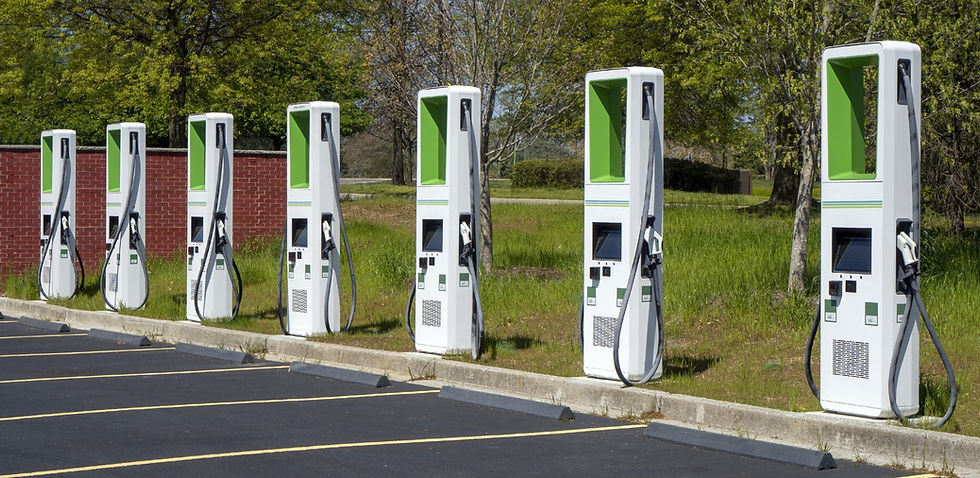How EVs Save Money for Your Business
- manager2153
- Aug 27, 2022
- 3 min read
Updated: Apr 9, 2024


Recently, many people have switched to electric vehicles, but should you as a business owner take this into account? You will discover that moving to an electric vehicle for your business has a number of financial advantages in addition to other advantages and that there are now many fantastic models to select from. How then might an EV help your company save money?
Stop paying for fuel
Eliminating the need to purchase fuel is the most obvious way that EVs help you save money. Switching to an EV is a wise and proactive move that will safeguard your business from additional price increases and operational costs at a time when the cost of fuel is soaring and not showing any signs of slowing down anytime soon. An EV will be a smart financial decision that will enable you to realize sizeable long-term savings if your staff spends a lot of time driving. This will make even more sense for public services that depend on tax funding to operate. Future savings for the police and other public agencies could reach the billion pounds range.
Tax Benefits
Transitioning to an electric vehicle is also subsidized by taxes. Benefit in Kind (BIK) taxes will not be applied to hybrid vehicles with emissions between 1 and 50 g/km and a pure electric range of more than 130 miles during the 2020–2021 tax year. 2021–2022 and 2022–2023 will see increases in the electric car tax on BIK to 1% and 2%, respectively.
Exemptions from the EV congestion charge
Congestion fees are not applied to electric vehicles. This is fantastic for anyone organizing a trip to an area with pure air. However, these additional savings will be especially helpful to commercial vehicles that frequently travel into and out of urban areas.
In London, the daily congestion fee is currently £15 per vehicle, between 7:00 and 22:00.
Capital Allowances for electric vehicles
100% first-year capital allowances are also available for vehicles with CO2 emissions below 50g/km. This implies that you can deduct the full cost of electric automobiles from your pre-tax profits.
This might translate to a tax break of £7,600 in the first year on a car that costs about £40,000.
Tax benefits on EV charging
No further tax benefits exist for charging your EV.
You pay a 5% normal VAT if you charge it at home. Electricity for businesses is priced at a standard VAT of 20%.
Fuel duty, which presently costs about 58p per litre before tax, does not exist.
Workplace EV charging tax exemptions
Employers who provide electric vehicle charging stations may not be subject to taxation as a benefit-in-kind. These prerequisites must be satisfied
A specific charging point must be used to provide electricity. The availability of charging stations at or close to the workplace is required. All employees or all of the employer's employees at a specific location must have access to charging.
Other Benefits
There are a few more advantages to switching to an electric one that you will discover. The extension of the plug-in vehicle and van grant until 2022/2023 will enable businesses to save money when they switch to electric vehicles. It should not be too difficult to find an appropriate electric vehicle for your company given the increased availability, and leasing an electric vehicle can be a good alternative.
Naturally, driving an electric vehicle is also a highly effective strategy to lessen your environmental impact, and by 2022, all enterprises should be doing this. At a time when consumers are becoming pickier about the brands they use, you will discover that minimizing your environmental impact is an effective strategy to boost brand recognition. This is a crucial social obligation for businesses. This suggests that switching to an electric vehicle could possibly help you draw in and keep more clients.
As you can see, moving to an electric corporate car has a lot of financial and other advantages. It is a wise financial decision to make now and might help your business save a lot of money in the long term. Additionally, it is a successful approach to lessen your influence and build a good reputation. Now is a fantastic moment for businesses to transition because there are several models available and both battery technology and charging infrastructure are advancing.
UK consumer confidence in the future hit a record low in August due to the soaring cost-of-living and bleak economic prospects.

_edited.png)







Comments